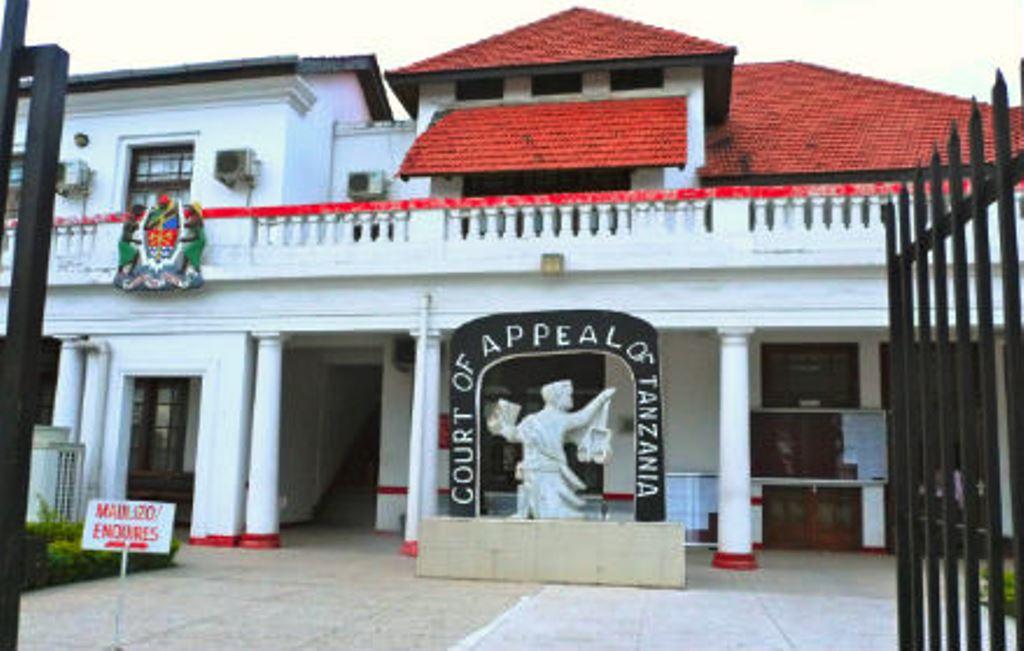Africa-Press – Tanzania. THE Court of Appeal has saved a suspected poacher, Michael Gabriel, from remaining behind bars for 20 years, for unlawful possession of two leopard skins valued at over 15m/-, the property of the government of the United Republic of Tanzania.
Justices Augustine Mwarija, Ignas Kitusi and Rehema Kerefu ordered Gabriel, the appellant, to be immediately released from prison after allowing his appeal he lodged to fault judgments of both Resident Magistrate’s Court of Manyara at Babati and that of the High Court.
“We allow the appeal and consequently, hereby quash the appellant’s conviction and set aside the sentence imposed on him. He should be released from prison forthwith unless he is otherwise held for any other lawful cause,” they declared.
The justices found that had the first appellate Judge properly re-evaluated the evidence, she would have found that the same did not prove the case against the appellant beyond reasonable doubt.
They were of the considered view that both lower courts misapprehended the evidence thereby arriving at an erroneous conclusion that the appellant was guilty of the offence.
During hearing of the appeal, the appellant had submitted that there was variance on the prosecution’s evidence, the chain of custody of the skins was not observed and the High Court erred in law and in fact when it failed to scrutinize the cautioned statement and hence arrived on at erroneous decision.
When determining the appeal, the justices agreed with both prosecution and defence on variance between the charge and the evidence, in particular, the place under which the appellant was found with the government trophies.
They noted that whereas the charge stated that the appellant was found in possession of the two leopard skins at Ng’arwaOrikiu area in Ngorongoro District, the arresting officers said he was found with them at a distance of about one kilometre out of Loliondo town where he was arrested.
According to the justices, under section 234 (1) of the Criminal Procedure Act, where in the course of trial it transpires that there is variance between the charge and evidence, the charge may be amended.
In the particular circumstances of this case, it was of the position of the justices that it was necessary to amend the charge because the evidence did not support the charge as regards the place at which the offence was committed.
“However, that was not done. The effect of the omission was to water down the prosecution evidence. Where, as a result of the variance between the charge and evidence, it is necessary to amend the charge but if such amendment is not made, the offence will remain unproved,” they said.
On the complaint relating to the cautioned statement, the evidence which the trial court acted upon to found his conviction, the justices noted with certain upon a careful reading of the same that the appellant did not confess to have been found in possession of the skins. From the contents of the statement, according to the justices, he was merely a middleman linking the prospective buyers and those who were selling the leopard skins.
“His acts might have constituted an offence different from the one with which he was charged. With respect therefore, we are of the considered view that the learned trial Resident Magistrate erred in finding that the appellant had confessed that the skins were found in his possession,” they said.
It was alleged that on September 17, 2015 the police at Loliondo received information that there were persons who were selling leopard skins. Following that information.
one senior police officer was assigned the duty of leading a team of police officers to investigate the matter and arrest the culprits. Together with them was one officer from the Anti-poaching Unit, Arusha.
The evidence shows through the assistance of an informer that the trio who, posed as buyers, managed to meet the appellant who took them to persons who had the custody of the skins somewhere outside the town, in a bushy area. Upon reaching the scene the appellant introduced the police officers to the two other persons as prospective buyers of the skins. The appellant and his colleagues then went into the bush and came out with a polythene bag.
When the team was satisfied that what was contained in the bag were leopard skins, they introduced themselves and while in the course of arresting the appellant and the other persons, chaos ensued and two of them escaped. Only the appellant ended up being arrested.
The appellant was later charged and pleaded not guilty. In its judgment, the trial court found that the prosecution had proved its case beyond reasonable doubt and, thus convicted and sentenced the appellant to pay a fine of 150,076,760/-or 20 years imprisonment







